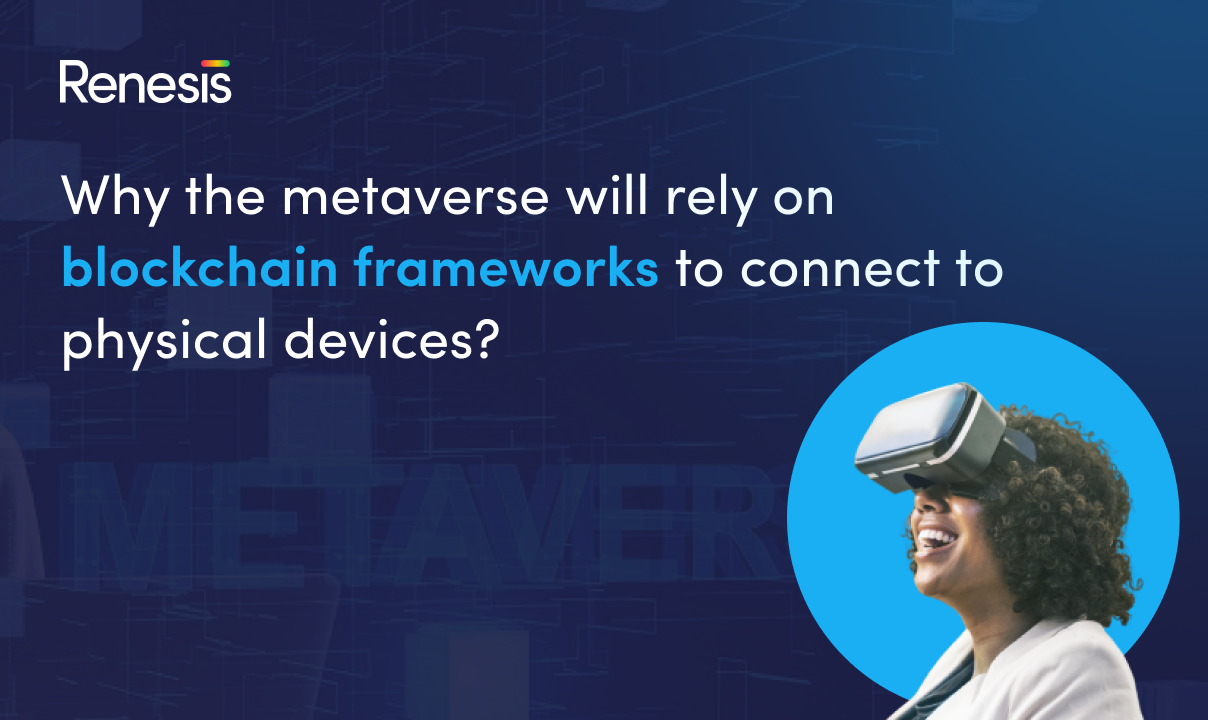Why the metaverse will rely on blockchain frameworks to connect to physical devices?
The metaverse is a virtual reality space that is projected to become a major part of our daily lives in the future. It is a shared, immersive environment that allows users to interact with each other and with virtual objects and experiences. In order to fully realize the potential of the metaverse, it will be necessary to connect it to the physical world in a seamless and secure way.
In the future, we will develop a real-life virtual world in which we can interact with digital objects, people, and environments built using AR or VR. There is still room for improvement in order to improve the user experience when it comes to entering such a world. For example, if you want to enter the metaverse in order to visit someone’s house, you cannot simply walk through their door. You need an entry point that can be used to enter the metaverse; a physical device of some sort. So how does this work? How does your phone know where the physical entrance point for your local metaverse is because these entrances will be located in physical locations? This is where blockchain frameworks come in.
In this blog, we will discuss why the blockchain is needed for the metaverse to connect with real physical world?
Why decentralization is necessary for the metaverse?
There are several reasons why decentralization is necessary for the metaverse. First, it will allow users to have complete control over their virtual assets and experiences. This is important, as the metaverse is likely to become a major part of our daily lives in the future, and users will need to have confidence that their virtual assets are safe and secure.
Second, decentralization will enable the creation of a more democratic and open virtual world, in which users have equal rights and opportunities. Finally, decentralization will provide a level of protection against censorship and other forms of interference, which will be important for ensuring the integrity of the metaverse.
How blockchain technology enables secure and transparent transactions?
Blockchain technology offers several key benefits that make it well-suited for use in the metaverse. One of the main advantages of blockchain is its decentralized nature, which makes it resistant to censorship and tampering. This is important in the metaverse, as it will allow users to have complete control over their virtual assets and experiences, without the need for a central authority.
Another benefit of blockchain is its ability to facilitate secure, transparent transactions. In the metaverse, users will need to be able to buy, sell, and trade virtual goods and services in a safe and secure way. Blockchain technology enables this by providing a transparent and immutable record of all transactions.
Finally, blockchain technology is flexible and adaptable, making it easy to integrate with a wide range of physical devices. In the metaverse, users will likely want to interact with the virtual world using a variety of devices, such as VR headsets, AR glasses, and smart home devices. By using a blockchain framework, it will be possible to connect these devices to the metaverse in a seamless and secure way.
The variety of physical devices that will be used to access the metaverse
As the metaverse becomes more prevalent in our daily lives, users will likely want to access it using a variety of devices. Some examples of physical devices that may be used to access the metaverse include:
VR headsets:
Virtual reality headsets, such as the Oculus Rift or HTC Vive, allow users to immerse themselves in a virtual world. These devices will likely be used to access the metaverse, providing users with a fully immersive experience.
AR glasses:
Augmented reality glasses, such as the HoloLens or Magic Leap, allow users to overlay virtual objects and experiences onto the real world. These devices will likely be used to access the metaverse, allowing users to interact with the virtual world in a more seamless way.
Smart home devices:
Smart home devices, such as smart speakers and smart displays, allow users to control their homes using voice commands. These devices may be used to access the metaverse, providing users with an easy and convenient way to interact with the virtual world.
Smartphones and tablets:
Smartphones and tablets are ubiquitous devices that are used by billions of people around the world. These devices will likely be used to access the metaverse, providing users with a convenient and portable way to interact with the virtual world.
In summary, the metaverse will rely on blockchain frameworks to connect to physical devices in order to provide users with a decentralized, secure, and flexible virtual reality experience. As the metaverse continues to grow and evolve, it is likely that blockchain technology will play an increasingly important role in its development.










